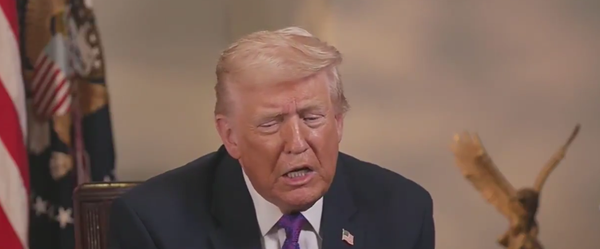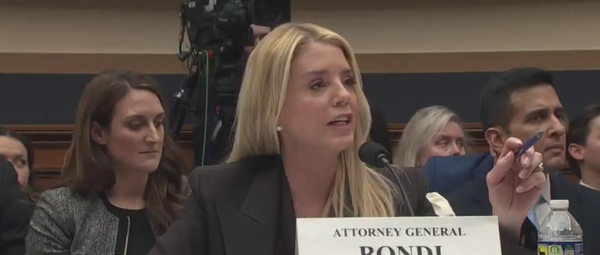How to Pick a Democratic Nominee
First, you must choose. Second, keep it simple. Third, party matters most.

Nate Silver looked out this morning over the field of more than 20 Democratic candidates who are vying for the party’s presidential nomination and began chewing off his fingernails. He’s concerned the Democrats will make the same mistake the GOP made when a madman ran down preferable candidates to win the nomination.
The crowded field developing for 2020 doesn’t necessarily imply that an anti-establishment candidate will prevail. Even when party elites don’t get their first choice, they usually get someone they can live with. But the high number of candidates does imply a higher-than-usual risk of chaos.
I share some of that concern. Only some. I do not think a crowded field will lead to another Donald Trump, because no one in the Democratic Party resembles the president. No one. The Democrats do not feature among their number a lying, thieving, philandering sadist. So right there, all things being equal, the Democrats have a lot going for them. A majority of Democratic voters don’t care about ideology or policy or whatever. What they care about is beating the president. Good.
Does that mean choosing one of more than 20 candidates is easy? Certainly not, though I think party elites will have a harder time picking a nominee than party regulars, because there is so much more at stake for them. I don’t write for elites, though. I write for you. Here’s my contribution to a conversation underway.
First thing to remember is the imperative to choose. There is no way around it. If you are a registered Democrat, you are duty-bound to winnow the field. Too often, when faced with a plethora of choices, people freeze. They figure that no choice is better than a wrong choice. Au contraire, mon frère! But don’t worry. We’ll figure this out.
The second thing to keep in mind is that it’s not too early to winnow the field. I know, I know. That’s not fair!, some will say. We should hear out their policy views first! All that matters. It matters a lot. But these are same-party candidates we’re talking about. We know what Democrats stand for. At the very least, we know they stand against Donald Trump. And again, most regular voters don’t care who the nominee is as long as he or she can beat the president. So it’s not too early to winnow the field.
How do we begin? By eliminating outliers. These include Tulsi Gabbard, Bernie Sanders and Howard Schultz. I’ve talked about Gabbard here. I’ve talked about Schultz here. As for Sanders, his biggest hurdle is that he wants the Democratic Party’s nomination while refusing to join the party. Love him or hate him, you have to concede that party ID matters to members of said political party. The less said about Gabbard, the better, but at least you can say in her favor that she’s a Democrat.
Joe Biden isn’t an outlier, but I’m eliminating him from the start. Yes, he’s a party elder. Yes, he was Barack Obama’s right-hand man. I’ve thought he’d make a terrific president. But compared to a field brimming over with diversity—in terms of race and ethnicity, gender and ideology—Biden comes off familiar and bland. There’s too much demand for new faces in the party. And besides, all things considered, I don’t think he’d make it past South Carolina, where the African-American majority of the party will pick Cory Booker or Kamala Harris, launching either into Super Tuesday.
Others: Beto O’Rourke is exciting, but there will be pressure on him to stay in Texas and turn it purple. Pete Buttigieg, the former mayor of South Bend, Ind., is too young. Nobody knows who John Delaney and Andrew Yang are. The author Marianne Williamson is not serious. Julian Castro, however, could be a dark horse runner.
There are a bunch of former governors waiting in the wings, as well as Ohio Senator Sherrod Brown. We’ll see what happens if they jump in. Of the people who have declared their intentions, my winnowing leaves a manageable field of senators. These are Booker, Harris, Elizabeth Warren, Amy Klobuchar and Kirsten Gillibrand.
That’s five to choose from. So far.
You’ll notice I haven’t talked about ideology, policy or even “scandals.” (Like the one dogging Warren about her Native American heritage.) That’s because I think these matter less to regular voters than they do to party elites. Elites tend to know a lot about, and care a lot about, things normal people don’t care about, because normal people have other things to do than pay attention to what elites talk about.
This is not to say all the Democrats are the same. There are huge differences between, say, Warren and Harris, and only a fool would ignore the differences. But those aren’t so vast that the party can’t reconcile them in the name of unity and victory. The Democrats are a liberal party. Therefore, compromise is baked in. This is why, ultimately, the Democrats won’t follow in the Republicans’ footsteps.
—John Stoehr

Many thanks to new subscribers!
With your subscription of $5 a month or $55 a year, you are demonstrating your dedication to entrepreneurship, independent thought and the national debate.
Please take a moment to share your enthusiasm with a family member or friend. While others try to tear everybody down, we can together try to raise everybody up!
And to everyone here who is signed up but not yet subscribing, please take a moment to click the “subscribe now” button. It takes 2 minute to say yes to the Editorial Board!
The Editorial Board is published every business day before lunch. It’s written in plain English so normal people like you and me can understand what’s going on. And with that understanding, we can change the world. Thank you! —JS




